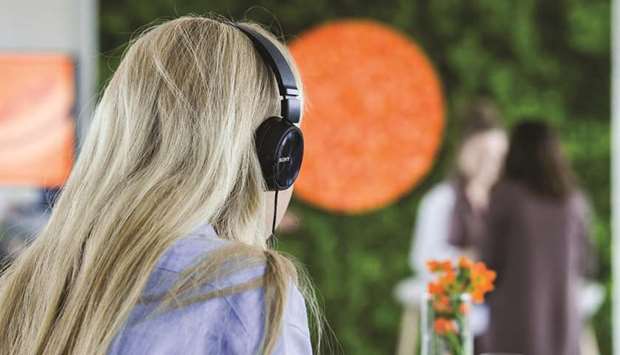From Buddhist monk in the Himalayas to successful start-up founder in California: British entrepreneur Andy Puddicome has had an interesting career trajectory.
Through his mindfulness app Headspace, he’s already introduced 42 million people to the practice of meditation, or at least that’s how many times the app has been downloaded.
The 46-year-old is convinced that meditation makes the world a better place. “If we are more compassionate to ourselves, we are more compassionate to the people around us,” he says.
Puddicombe’s company is headquartered in Los Angeles and employs 260 people. And it’s getting bigger, since mid-March, the company’s products have also been available in a second language, German.
The app focuses on various different goals of meditation, from improving sleep and personal development to reducing stress and anxiety. By the end of the year, the company’s products will be available in five languages.
Puddicombe first tried meditation with his mother when he was 11, he says. When he was in his early 20s, several people he knew were killed in a traffic accident.
No matter how many books he read or how hard he tried to distract himself, “I couldn’t find a sense of peace,” he says.
He decided to give up his studies in sports science and head to the Himalayas to learn how to meditate. Eventually, in a Tibetan monastery in northern India, he was ordained as a monk.
Ten years later, Puddicombe returned to London and set up a meditation studio. During this time, he met Rich Pierson, an advertising professional on the verge of burnout. They pooled their knowledge of meditation and marketing to found Headspace.
The idea was an instant hit. Hollywood stars such as Ryan Reynolds, Gwyneth Paltrow and Emma Watson were among those singing the praises of the app.
Puddicombe, who now lives with his wife and child in Los Angeles, achieved a certain celebrity status thanks to appearances on talk shows like Jimmy Fallon and Ellen DeGeneres.
The original goal of bringing mindfulness to as many people as possible may have become somewhat diluted. But meditation apps are big business.
Apple named ‘self-care’ as its app trend of the year for 2018, name-checking meditation apps such as 10% Happier, Calm and Shine.
“We became mindful of some amazing wellness apps,” the tech giant noted.
As of early 2019, Calm, the second most popular meditation app in the US after Headspace, was attracting about 75,000 new users a day around the world.
The app offers hundreds of hours of content on a wide range of themes. “The aim is to sharpen concentration, strengthen awareness and develop calmness,” says Alex Will, chief strategy officer for Calm.
Many of the apps offer a free trial version. For those who want to unlock extra features, there’s the option of a monthly subscription, in the case of Headspace, around 13 euros a month (14.5 dollars), or an annual subscription of 95 euros.
Isn’t it a bit ironic that people are looking to their smartphones to find inner peace? The very devices that seem to constantly speed up our lives and distract us from what’s really important?
Puddicombe grins; it’s clear he can see the irony. But, “I don’t believe that a smartphone is stressful,” he says. “It’s our behaviour around it and our relationship with it.”
For him, smartphones are a “platform through which we can reach people where they are.” In his case, that means making it possible for people to meditate wherever they are.
Guenter Hudasch, a German mindfulness expert and teacher, sees things differently. “They certainly have a value if you use them regularly,” he says. But that requires a certain amount of discipline.
“When you meditate, you will have certain experiences,” he adds. These should be discussed with a teacher from time to time, especially at the beginning, he says.
In addition, he believes the experience of meditating in a group is often more powerful than doing it alone with an app.
Johannes Michalak, a mindfulness expert and professor of psychology at Witten/Herdecke University, sees things similarly. To begin with, he was sceptical about meditation apps. “But I have since seen the positive effects – that many people can get access to meditation and mindfulness through these apps.”
For some people, that will be all they need. But for those who want to delve deeper into meditation, or anyone with psychiatric problems, he recommends more intensive support in the form of a mindfulness programme or therapy.
The bottom line, according to Michalak: “Apps are not a magic cure.” – DPA

MEDITATION: The app, Headspace, focuses on various different goals of meditation, from improving sleep and personal development to reducing stress and anxiety.
